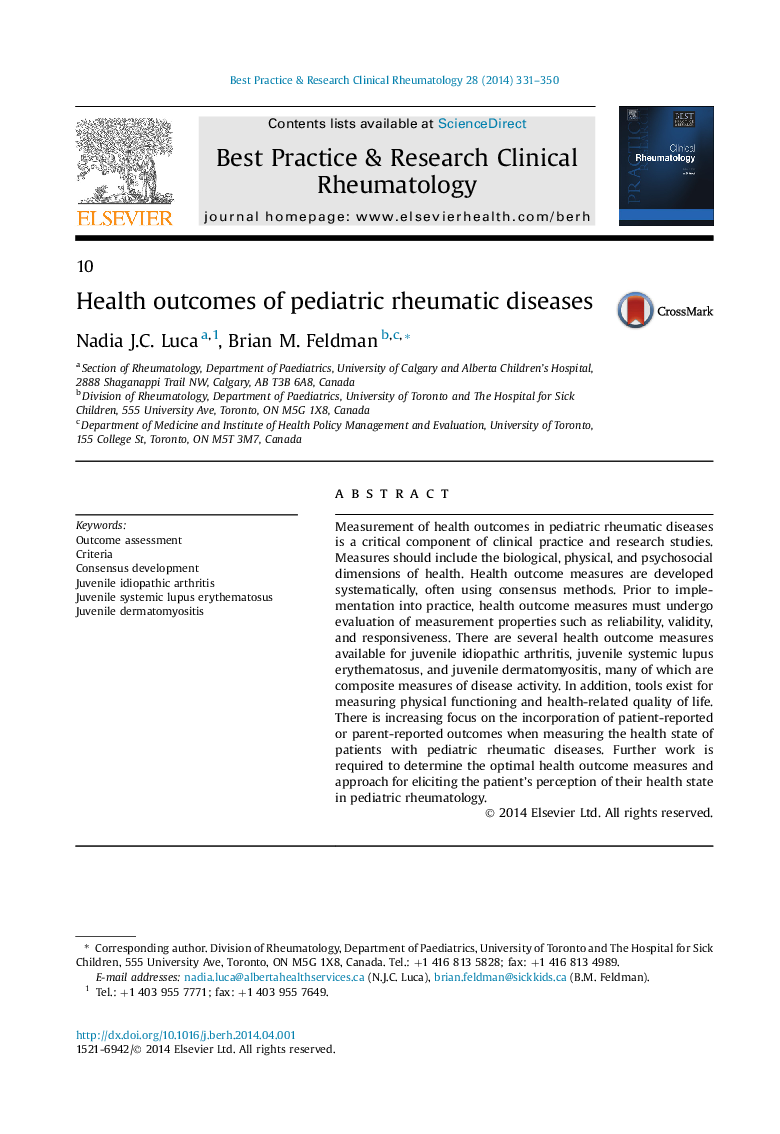| Article ID | Journal | Published Year | Pages | File Type |
|---|---|---|---|---|
| 3342976 | Best Practice & Research Clinical Rheumatology | 2014 | 20 Pages |
Measurement of health outcomes in pediatric rheumatic diseases is a critical component of clinical practice and research studies. Measures should include the biological, physical, and psychosocial dimensions of health. Health outcome measures are developed systematically, often using consensus methods. Prior to implementation into practice, health outcome measures must undergo evaluation of measurement properties such as reliability, validity, and responsiveness. There are several health outcome measures available for juvenile idiopathic arthritis, juvenile systemic lupus erythematosus, and juvenile dermatomyositis, many of which are composite measures of disease activity. In addition, tools exist for measuring physical functioning and health-related quality of life. There is increasing focus on the incorporation of patient-reported or parent-reported outcomes when measuring the health state of patients with pediatric rheumatic diseases. Further work is required to determine the optimal health outcome measures and approach for eliciting the patient's perception of their health state in pediatric rheumatology.
